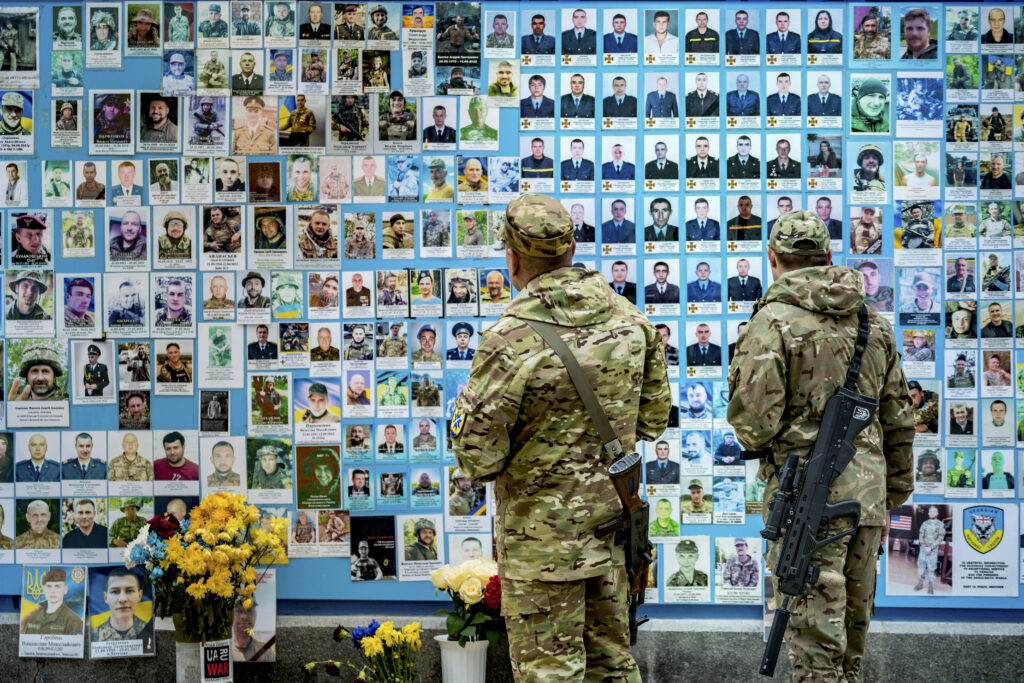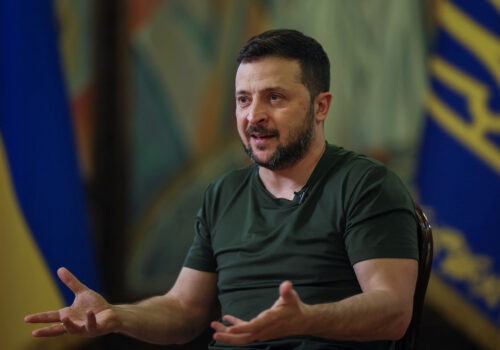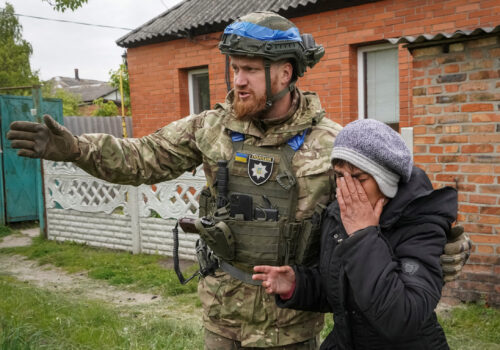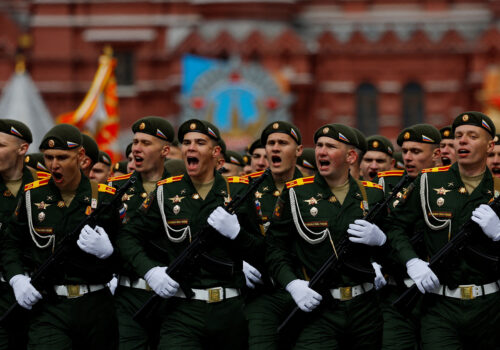Far away from the front lines of the country’s ongoing war with Russia, growing numbers of Ukrainian veterans are facing up to the psychological aftermath of their military service. These mental health challenges include post-traumatic stress disorder (PTSD), depression, and anxiety. Given the sheer numbers involved, there are serious concerns over Ukraine’s ability to address this issue effectively.
Over the past decade, the number of Ukrainian military veterans has expanded dramatically. Prior to the onset of Russia’s full-scale invasion in 2022, approximately half a million Ukrainians had served in the military campaigns underway in the east of the country since 2014. Over the past two years, this figure has mushroomed. Ukraine’s Ministry of Veteran Affairs has estimated that up to five million Ukrainians may be eligible for veteran status by the end of the war.
In 2024, Ukraine allocated approximately $350 million to support veterans and their families through the Ukrainian Veterans Fund. Nevertheless, there has been considerable criticism over the use of this funding. In a survey of Ukrainian army veterans conducted earlier this year, many said they believed veterans were not having their post-service needs met and required better access to support.
Current Ukrainian legislation offers benefits to veterans such as housing provisions. A range of support is also available for those with disabilities incurred during wartime service and for family members of service personnel. However, critics say there is significant confusion over the availability of support, and complain of inconsistencies along with a frequent lack of funding. In practice, many veterans say they are unable to access the care they need.
Stay updated
As the world watches the Russian invasion of Ukraine unfold, UkraineAlert delivers the best Atlantic Council expert insight and analysis on Ukraine twice a week directly to your inbox.
The current healthcare struggles of Ukrainian veterans resonate with the US veteran community, which continues to face similar struggles with post-service mental health issues. Like their Ukrainian counterparts, large numbers of American veterans deal with PTSD, depression, and anxiety.
According to a recent survey, nearly one in four American veterans are diagnosed with at least one mental health disorder following military service. This statistic illustrates the widespread nature of mental health concerns among veterans everywhere, and gives an idea of the sheer scale of the challenge facing the Ukrainian authorities.
Ukraine may be able to learn from US experience in the provision of support for military personnel. US veterans can call upon a more structured support system under the Department of Veteran Affairs. However, this approach is not always effective, with veterans often encountering long wait times, bureaucratic hurdles, and a shortage of healthcare providers adequately trained in military cultural competence. This last point is crucial; research has highlighted that more than three-quarters of veterans find it extremely important to receive care from providers who they feel understand them and can treat them appropriately.
Eurasia Center events

The challenges Ukraine faces in providing the necessary support for the country’s veteran community echo the issues encountered in the United States and elsewhere. Ukraine currently struggles with underfunded and understaffed mental health services. These shortages mean that even when veterans take the appropriate steps to seek help, the necessary resources may not be available or might come too late.
Another issue is lack of financial support. While healthcare is a major concern for Ukrainian veterans, access to financial resources is also critical for general well-being. When surveyed earlier this year, more than half of veterans indicated that they struggled to remain financially secure.
A further significant barrier to effective mental health treatment in Ukraine is the lack of providers with a good understanding of military culture. Ukrainian veterans often comment that their experiences are misunderstood by the medical professionals who are treating them, leading to misdiagnosis and ineffective treatments.
The stigma associated with mental health issues in Ukraine is an additional issue, particularly due to the emphasis on “toughness” and “strength” within military communities. This can lead to veterans failing to acknowledge their struggles and refusing to seek the help they need and deserve.
Addressing these challenges requires a multifaceted approach that includes increased funding for mental health services, enhanced training in military culture for healthcare providers, and an active approach to challenging the narrative around mental health, especially in relation to Ukraine’s military and veteran communities. The task of addressing the stigma attached to mental health is something the wider community can participate in, as Ukrainians seek to create a more compassionate environment for the country’s defenders.
Claire Szewczyk is a digital content coordinator for Hill & Ponton. She formerly worked for the Department of Veterans Affairs.
Further reading
The views expressed in UkraineAlert are solely those of the authors and do not necessarily reflect the views of the Atlantic Council, its staff, or its supporters.

The Eurasia Center’s mission is to enhance transatlantic cooperation in promoting stability, democratic values and prosperity in Eurasia, from Eastern Europe and Turkey in the West to the Caucasus, Russia and Central Asia in the East.
Follow us on social media
and support our work
Image: Ukrainian soldiers at the Memory Wall of Fallen Defenders near the entrance of the Saint Michael's Golden Domed Cathedral, Kyiv. (Photo by Celestino Arce/NurPhoto)




